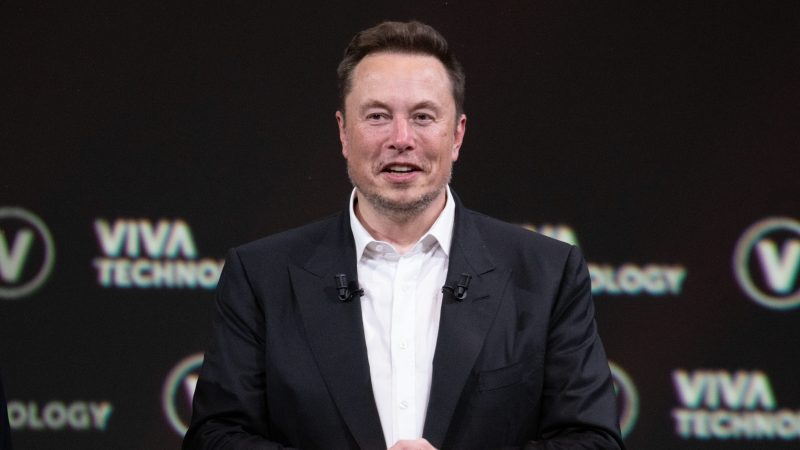
Is there any version of the future in which you can imagine Sir Keir Starmer, Prime Minister of the United Kingdom, obsequiously interviewing Elon Musk on a conference stage?
Thought not. The fact that Starmer would never, ever consider doing something so crass does, however, give us some frame to consider what the Labour Party believes in – and what he’d hope to achieve in government.
How so? In the way that it helps to demonstrate the function and mission of government and its relationship with the market. In short, I increasingly believe a Starmer administration will represent not just a break with 13 or 14 years of Conservative government rule, but will also represent a break with the guiding principles of Blairism.
Starmer doesn’t want war with the private sector – or to kowtow to it
This isn’t as simple as nationalising or not nationalising. This is about injecting life into the nearly dead corpse of the idea of government as a confident and strategic actor – one that will see big business as an equal, something that needs to be controlled and directed in the interests of the nation.
There was a passage in Starmer’s speech on Friday to the North East Chamber of Commerce that says it explicitly: “You need a government that gets involved. That rolls up its sleeves. That offers the hand of partnership in pursuit of the national interest.”
This is fascinating language. Critics complain that Starmer doesn’t have a vision or a philosophy, but I disagree. This passage is his philosophy in a nutshell – as clear as day. Starmer wants to run a powerful government that won’t go to war with the private sector (à la Corbyn) and nor will it kowtow to it (à la Blair). Instead, he wants government to be the equal of it, to have confidence to set the national strategy and then ensure – through both stick and carrot – that the private sector gets onboard.
You can also see it in the way he talks about rebuilding the country and its infrastructure. It is evident that, unlike Blair, he will fully embrace the idea of a full-blooded industrial strategy: “We will take on the blockers that hold a veto over British aspiration. We will build one and a half million homes right across our Britain. With opportunities for first-time buyers here in the North East. New infrastructure to support businesses, families and communities to grow. Roads, warehouses, grid connections, labs – all built quicker and cheaper.”
We need to rebuild the confidence and substance of the state
Planning is a great case in point of the need to rebuild the confidence and substance of the state. There is a hideous shortage of both planners themselves and confidence in the planning process. Local authority planning departments have been emasculated through years of austerity. In too many places, there isn’t a coherent local or regional plan.
An emaciated state has backed away from an area of vital importance if this country is to build the houses it needs and to embrace the green industrial revolution that will secure the kind of jobs and growth we need.
Starmer and Rachel Reeves are clear that we will need to rebuild planning departments and the confidence of those who work in them if their government is to fulfil its promise. This process will need to be replicated across the public realm too.
And so what we see emerging in Labour frontbench thinking could not be in starker contrast to Rishi Sunak and his hideous impression of Smithers to Musk’s Mr Burns. Musk is the definition of a modern corporate behemoth with a moral compass that has gone so far awry that its needle is spinning manically out of control.
Despite this, Sunak sees a San Fran techbro to fawn over. Starmer sees the kind of businessman in desperate need of the firm hand of Big Government to firmly steer his energies in the right direction.
There has been much handringing in the last couple of years about the number of Union Jacks on display at conference. But where some saw them as a desperate attempt to buy goodwill from a still Brexity ‘Red Wall’, I see the flags as a statement about the idea of a patriotic and confident state – one that will stand up to multinationals in the interest of the people of this country.




More from LabourList
‘Hope starts young: Why Labour must tell the story of a better tomorrow’
LGBT+ Labour suspends AGM amid fears of legal action over trans candidates running for women’s roles
‘Hyperlocal messaging can help Labour win elections: Here’s how’